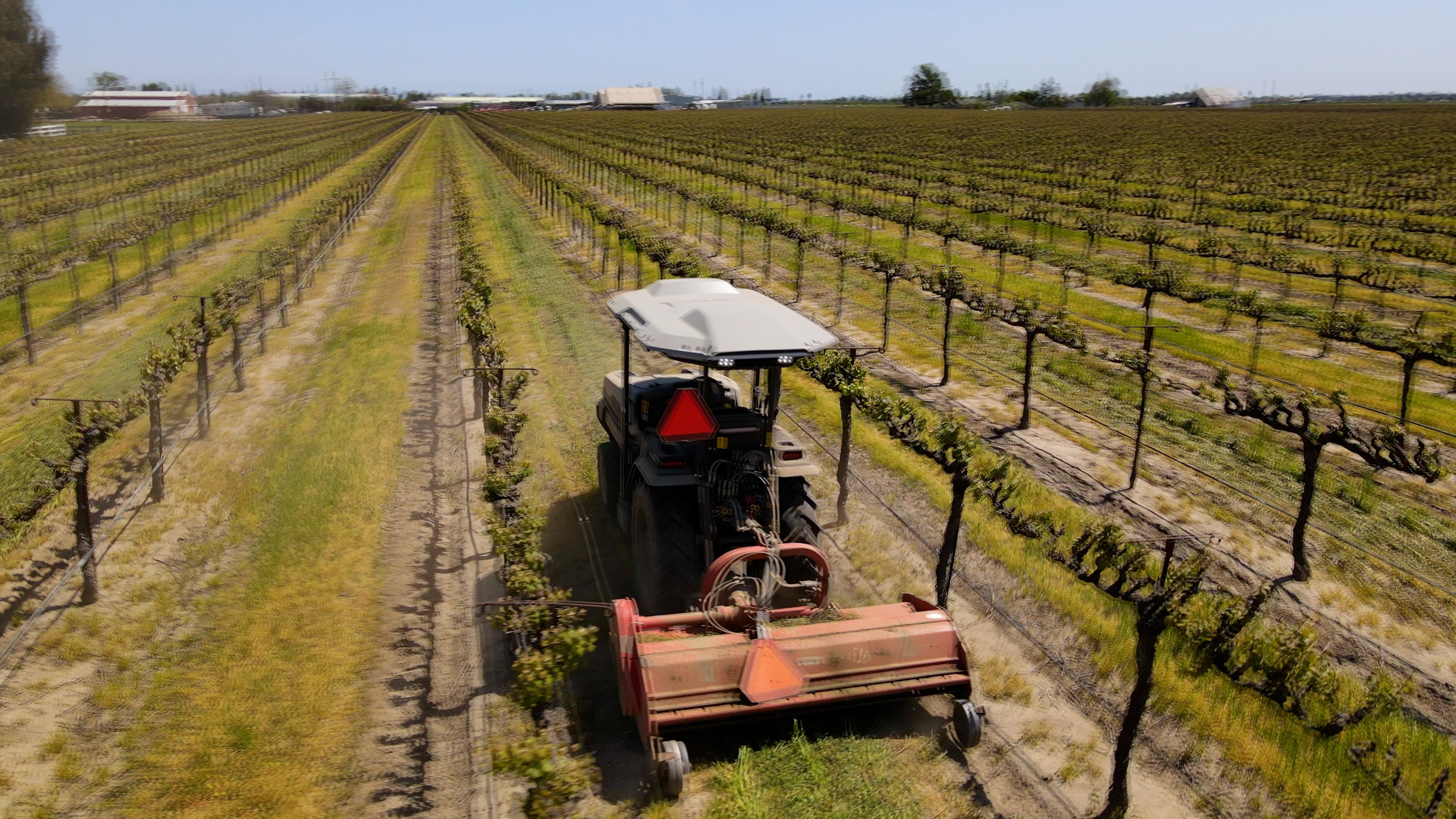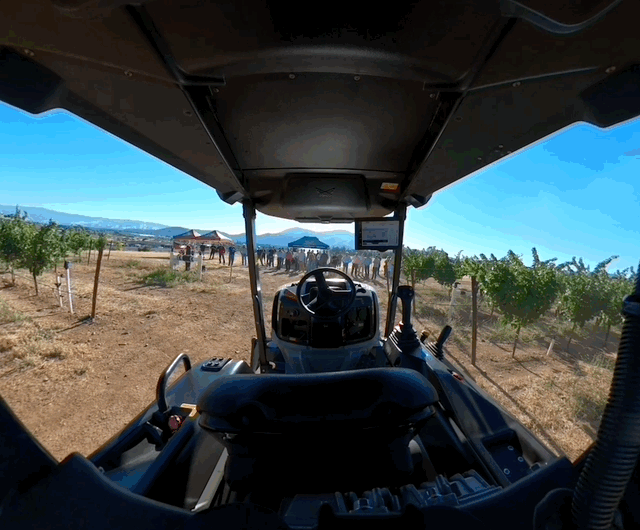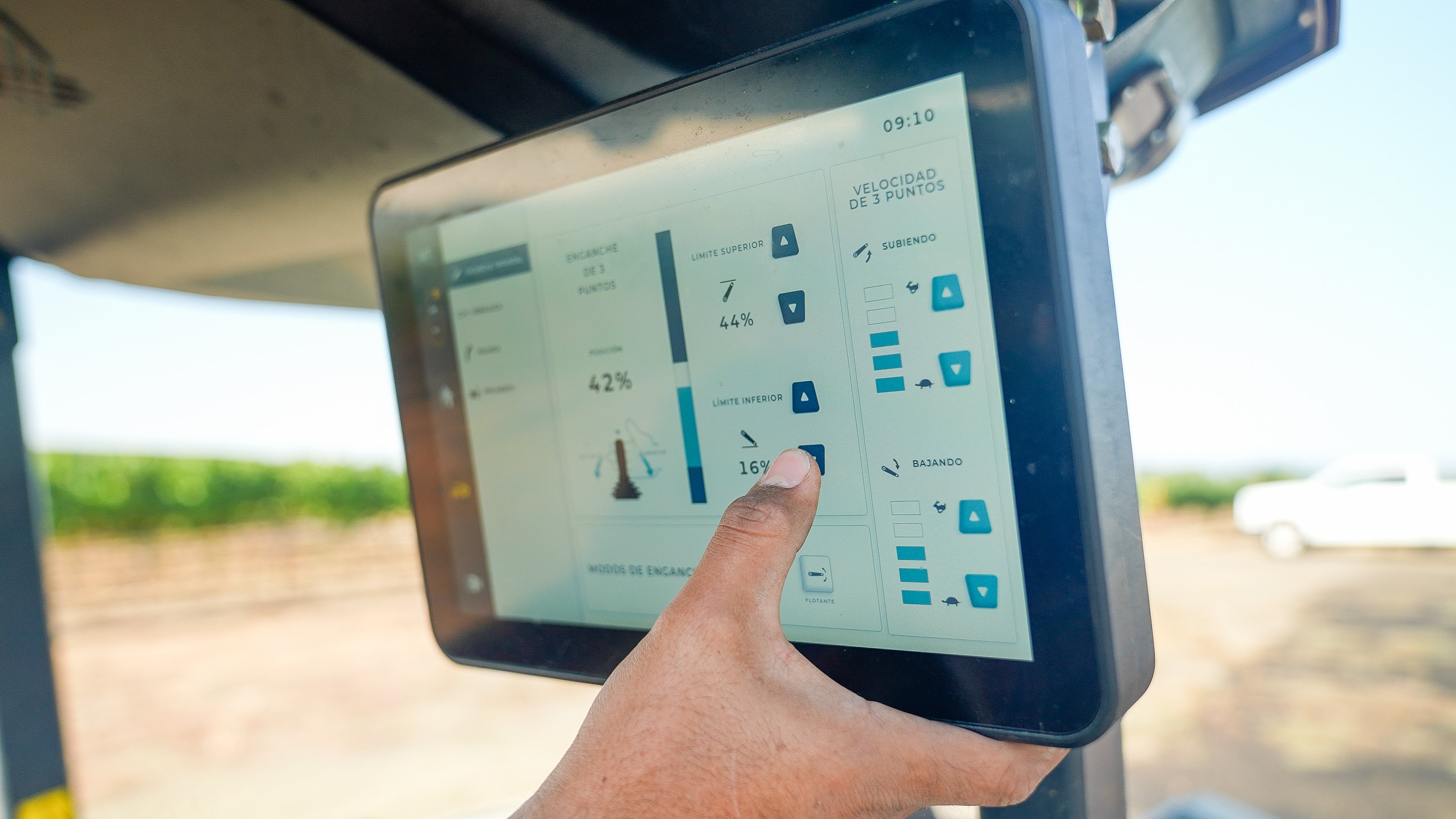There’s an old saying that rings true even today; the tractor is the most important vehicle in the world. Without tractors and similar farming equipment, the highly productive farming upon which the world relies for its food wouldn’t be possible.
But tractors haven’t stayed static over the decades, evolving over time into powerful machines that have dramatically shifted the farming landscape. Now, with the advent of EV tractors in agriculture, the farming industry is set to undergo another transformation, one that elevates it into a profession that is safer, healthier, more profitable, productive, and enjoyable.
What Are EV Tractors?
Put simply, an EV or electric vehicle tractor is a tractor that runs on electricity rather than diesel or traditional gas power. EV tractors can do the same kind of work as comparable traditional tractors with diesel engines, ranging from spraying crops, pushing feed to dairy cows, supporting harvest operations to mowing and more — it all depends on what a farmer needs and the implements that integrate with the electric tractor (e.g., push blade, mower, sprayer, cultivator, and so on). .jpg?width=700&height=392&name=MT_Feb23_FrontLoader-104%20(1).jpg) To be economically viable solutions for farmers – especially fruit, vegetable, and dairy farmers – EV tractors needed infrastructure and technological advancements that help solve the issues farmers face; such as those related to farm profitability, safety, and productivity. Today, these innovative machines are powerful with reliable batteries, and some are constructed with several key features that make them an attractive prospect for farmers who are eager to get ahead of the challenges that have burdened them for years.
To be economically viable solutions for farmers – especially fruit, vegetable, and dairy farmers – EV tractors needed infrastructure and technological advancements that help solve the issues farmers face; such as those related to farm profitability, safety, and productivity. Today, these innovative machines are powerful with reliable batteries, and some are constructed with several key features that make them an attractive prospect for farmers who are eager to get ahead of the challenges that have burdened them for years.
How Do EV Tractors Work?
EV tractors are powered by electric vehicle batteries, which receive power from electric outlets or charging stations. The energy from the battery is sent to the electric motor, where it is converted from electrical energy to mechanical energy in order to operate the tractor. Once charged, EV tractors can continue to run, typically for an entire day of work, until their batteries need to recharge. With today's advanced battery technology, electric tractor battery power typically lasts a full word day or longer, even while using an implement. However, run times vary based on the type of electric tractor, operating conditions, and the type of implement being used.
EV tractors do not produce any emissions, as their mechanical power is produced through an electric current instead of burning fossil fuels, benefiting farmers, their farms, and the planet by eliminating toxic emissions and damaging ground-level ozone pollution. Additionally, they reduce the overall carbon footprint of our food ecosystem.
What Is the Role of EV Tractors in Modern Farming?
Modern farming, particularly farming that takes place on smaller farms, faces numerous challenges — chronic labor shortages, diesel and diesel-related expenses, reporting costs, and risk of damage from extreme weather events, among others. And yet, in contrast with large-scale, industrial farms, fruit and vegetable farms produce a wider variety of the world’s food crops and make an important contribution to agricultural biodiversity.
The U.S. is dominated with crops like corn, wheat, and soy. These are commonplace at industrial farms, which according to the Union of Concerned Scientists, are characterized by large-scale monocultures that are typically used as animal feeds, biofuels, and low-nutrient, high-processed foods. By reducing or eliminating the cost of diesel, EV tractors can help make farming more profitable for the world’s fruit and vegetable farmers and keep a diverse selection of more nutritious, healthful foods on the table.  Monarch Tractor has taken the electric tractor concept even further with its MK-V — a driver-optional, smart, electric tractor designed for vineyards, orchards, berries, and dairy farms. Stacking these technologies elevates a farm’s profitability, productivity, and efficiency. Farmers can send the autonomous tractor out for tasks like mowing, without incurring the costs of diesel or labor. Monarch’s Wingspan Ag Intelligence (WingspanAI) technology gathers data for easy-to-read reports and the tractor’s advanced camera technology gives farm managers and operators immediate, real-time insights on tractor operations.
Monarch Tractor has taken the electric tractor concept even further with its MK-V — a driver-optional, smart, electric tractor designed for vineyards, orchards, berries, and dairy farms. Stacking these technologies elevates a farm’s profitability, productivity, and efficiency. Farmers can send the autonomous tractor out for tasks like mowing, without incurring the costs of diesel or labor. Monarch’s Wingspan Ag Intelligence (WingspanAI) technology gathers data for easy-to-read reports and the tractor’s advanced camera technology gives farm managers and operators immediate, real-time insights on tractor operations..png?width=795&height=479&name=portal_2_liveops%20(1).png)
What Are the Benefits of Using EV Tractors?
There are many significant benefits to using EV tractors.
- Electric tractors don't release carbon emissions, so they're more eco-friendly and often healthier for crops. The Environmental Protection Agency (EPA) reports that diesel engines contribute to ground-level ozone due to their emissions, and this ozone causes damage to crops, trees, and other types of vegetation — in fact, it might even contribute to the production of acid rain.
- EV tractors significantly reduce fuel costs, as farmers are only paying to charge the battery rather than paying for diesel. When a farm is outfitted with solar panels and is generating its own electricity, the cost for charging the tractor goes to zero. As farms shift towards increased electrification, (or even become fully electric) the ROI for installing solar panels also grows.
- With fewer parts in the engine, EV tractors help reduce maintenance costs, as no oil changes or air filters are required. EV tractors have simplified systems in place of conventional exhaust, injection, and transmission systems, so there are fewer moving parts to maintain.
- EV tractors are quieter compared to traditional diesel tractors, which can be better for tractor operators and anyone working near the tractor.
The Real-World Application of EV Tractors
Not convinced that a farmer will feel these benefits deploying an EV tractor on the farm? As of December 2022, Monarch Tractor was the only company to produce a fully electric, driver-optional, smart tractor at scale and bring it to market. This has allowed the Monarch to collect data and insights from customers and field trials.  Autonomous tractor feed pushing at dairy farms is showing how an autonomous and smart EV tractor helps increase milk production and save on labor. Specifically, the ability to push feed autonomously with a specialized implement (feed push blade) helps get more feed to the cows, which in turn, boosts milk production. Because the electric tractor is operating autonomously, a farmer saves on labor and diesel costs while ensuring a more reliable feed schedule.
Autonomous tractor feed pushing at dairy farms is showing how an autonomous and smart EV tractor helps increase milk production and save on labor. Specifically, the ability to push feed autonomously with a specialized implement (feed push blade) helps get more feed to the cows, which in turn, boosts milk production. Because the electric tractor is operating autonomously, a farmer saves on labor and diesel costs while ensuring a more reliable feed schedule.
Working at vineyards, the MK-V has been saving farmers, time and money, giving farm managers real-time visibility on operations, eliminating diesel costs and emissions, and even making it easier for operators to bring a higher level of precision to operations with automated lane-centering, an advanced driver assist feature. A case study at a high-density apple orchard calculated potential labor costs savings at $12K per year if the tractor was used autonomously for 500 out 1000 hours of run time.  Without the need to carry diesel fuel, farmers also enjoy greater ease of use with an EV tractor. With the MK-V, cameras provide 360-degree vision to help with navigation, hooking up implements, and safety.
Without the need to carry diesel fuel, farmers also enjoy greater ease of use with an EV tractor. With the MK-V, cameras provide 360-degree vision to help with navigation, hooking up implements, and safety.
Bottom line: farms will realize real-world benefits and improvements as soon as EV tractors are deployed in the fields.
What Are Some Concerns About EV Tractors?
Though there are plenty of major advantages to using EV tractors on a farm, some farmers may feel wary of adopting these new technologies without accounting for any potential downsides.
Battery Life and Charging Times
Some farmers have expressed concern that EV tractors are inherently unreliable since their operational windows are constrained by their battery life spans. However, the best EV tractors overcome these concerns quickly – for example, the Monarch MK-V is engineered with an advanced battery management system and has a run time of up to 14 hours depending on the farm, operation, and implement. Customers like that it only takes six hours to charge from 0% to 100%. Farm managers have reported that planning the day around this charging schedule is more than manageable. And dairy farmers plug the MK-V in between feed-pushing operations, enabling a 24/7 workday.
Cost vs. Traditional Tractors
The initial cost of an EV tractor is another concern of farmers. The price of an electric EV tractor can be reduced by taking advantage of financial incentives when available, including those applicable to charging infrastructure. When you consider the long-term savings that an electric tractor can bring to your farm – especially an electric tractor that is also driver-optional and smart – it’s clear that investing in these new tractors could be a wise long-term economic investment.

Understanding the Future of EV Tractors
With their many advantages, electric tractors promise to play an important role in the future of farming Let’s take a closer look at the future of EV tractors and how they interact with additional technologies.
Emerging Innovations
EV tractors are powerful new tools in and of themselves. But perhaps more importantly, EV tractors are a platform for new, ever-more-useful innovations. The MK-V was engineered to work with the common implements that are part of today’s farms, and those of the future, providing a robust platform for next-generation smart implements. Monarch Tractor, the maker of the MK-V, is also licensing its technology to other manufacturers, ensuring as many farmers benefit from the latest developments in AgTech at scale and speed.
Seen through this lens, EV tractors aren’t isolated advancements — they're integral parts of a broader transition to a new farming paradigm.
Bottom Line
EV tractors are making their way onto farms right now. These efficient, highly productive vehicles are transforming farms and helping make them better than ever. Monarch’s MK-V tractor is supporting farmers by giving them the resources they need to overcome today’s challenges and those of the future.
References:
“Sustainable Agriculture.” United States Department of Agriculture. https://www.nifa.usda.gov/topics/sustainable-agriculture
“Electric Vehicle (EV) Definition.” U.S. Department of Energy.
https://afdc.energy.gov/laws/12660
“Small Farms, Big Differences.” U.S. Department of Agriculture.
https://www.usda.gov/media/blog/2010/05/18/small-farms-big-differences
“Hidden Costs of Industrial Agriculture.” | Union of Concerned Scientists.
https://www.ucsusa.org/resources/hidden-costs-industrial-agriculture#:~:text=Industrial%20agriculture%2C%20especially%20in%20the,and%20enormously%20costly%E2%80%94health%20impacts
“Learn About Impacts of Diesel Exhaust and the Diesel Emissions Reduction Act (DERA).” US EPA. https://www.epa.gov/dera/learn-about-impacts-diesel-exhaust-and-diesel-emissions-reduction-act-dera



.jpg?width=680&name=MT_Aug23_LakeCountyDemoEvent-15%20(1).jpg)
.jpg?width=680&name=MT_Sept23_Beckstoffer-175%20(1).jpg)